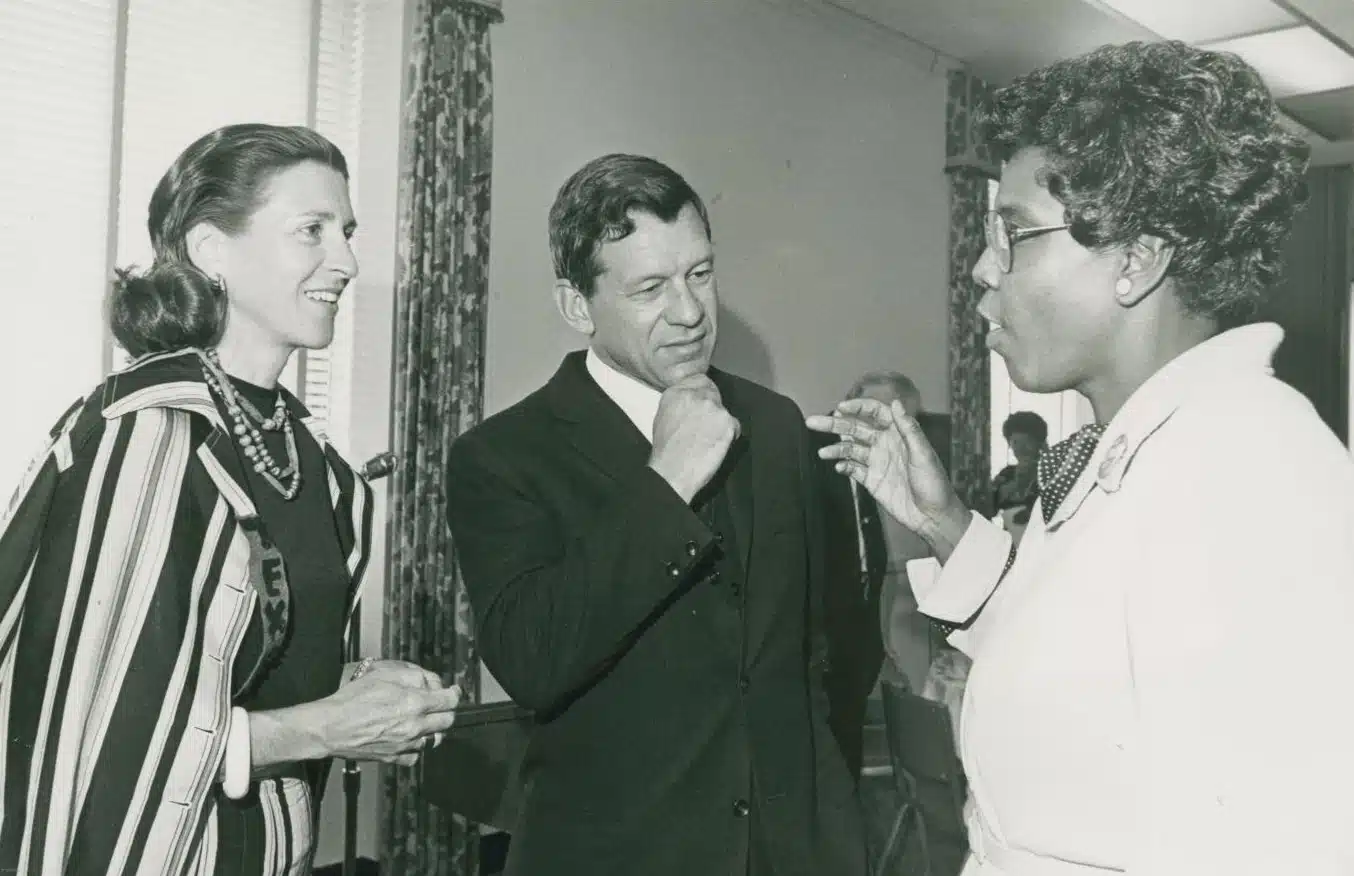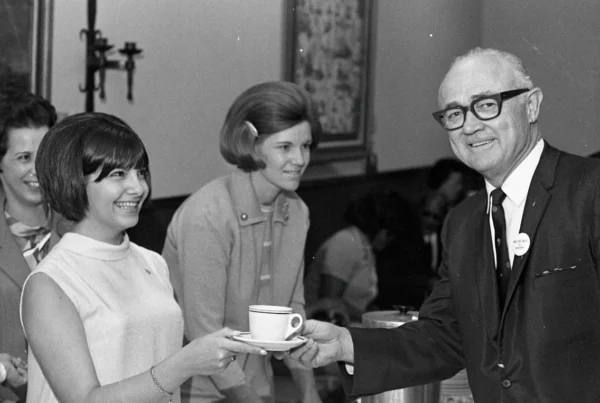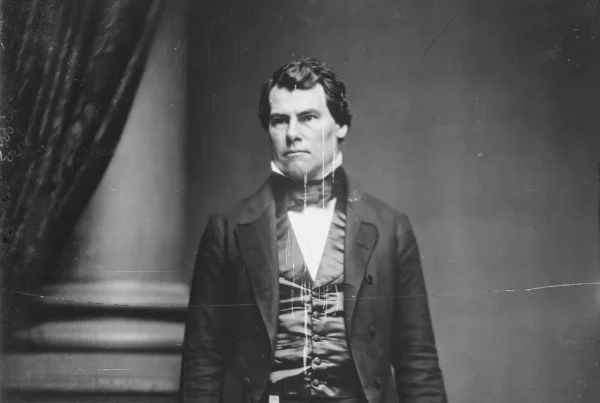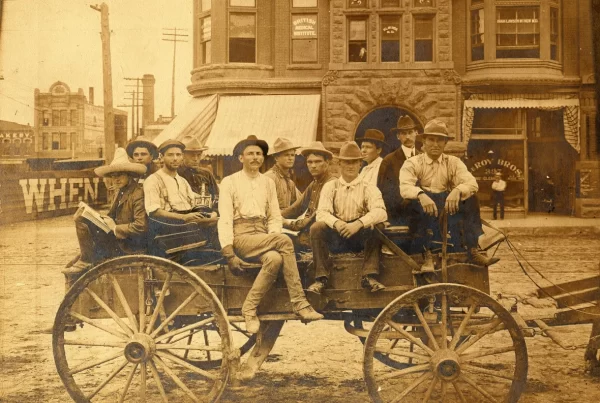William Pettus Hobby Jr. (born January 19, 1932) served as the 37th Lieutenant Governor of Texas from 1973 to 1991, holding the office for an unprecedented five terms. A Democrat known for his intellect, institutional knowledge, and measured leadership style, Hobby oversaw the Texas Senate during a period of dramatic political and economic change. Hobby is widely regarded as one of the most influential lieutenant governors in the state history, who shaped the office—and state government generally—in lasting ways.
Hobby was born into a prominent Texas family. His father, William P. Hobby Sr., served as Governor of Texas from 1917 to 1921, and was the owner and publisher of the Beaumont Enterprise and, later, president of the Houston Post. His mother, Oveta Culp Hobby, was 26 years younger than his father and served as the director of the Women’s Army Corps during World War II and as first Secretary of the Department of Health, Education, and Welfare under President Eisenhower.

Hobby attended high school at a private school in Washington, D.C., while his mother served in the Eisenhower Administration, then attended Rice University and served for four years in the U.S. Navy before entering publishing and politics. He worked as a reporter and editor at the Houston Post, where his father was president, covering the legislature.
Hobby’s first job in government was in 1959, when he served as parliamentarian of the Texas Senate under Lieutenant Governor Ben Ramsey. This job appealed to him and stirred an existing desire to run for office as his father had done. He later reflected, “I always wanted to run for office. From the time I was parliamentarian for Lt. Gov. Ben Ramsey in 1959, I knew that lieutenant governor was the office to which I was best suited.”1
In the 1960s, Hobby continued working at the Houston Post, assuming the title of president after his father fell ill. He also won short-term appointments as a University of Houston regent and a member of the Texas Air Control Board (1969–1971), and the chairman of a senate-led interim study committee on welfare reform.
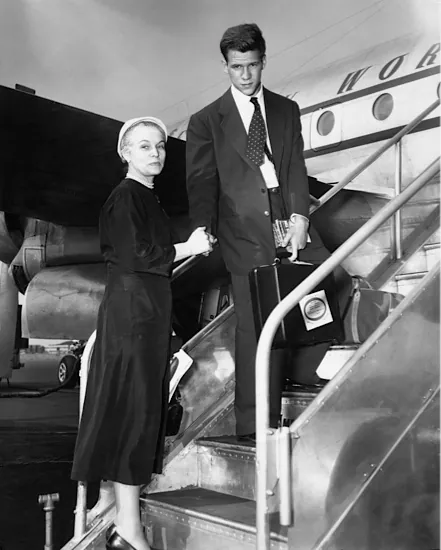
Hobby then ran for lieutenant governor in 1972 at the age of 40, securing the nomination of the Democratic Party and defeating a Raza Unida third-party candidate with 93% of the votes. At that time, the Republican Party was still fairly weak in Texas and did not run a candidate against Hobby. Unlike many previous lieutenant governors, Hobby had not served in the Texas House or Senate. His family history, past service on the Senate staff, and name recognition likely played a significant role in his 1972 victory. Moreover, the fact that he had not held elective office was beneficial given the political climate that year, as it helped him avoid the taint of the Sharpstown Bribery Scandal.
When Hobby took office in January 1973, Texas was experiencing rapid growth, economic diversification, cultural change, increasing demands on public institutions, and social unrest over the Vietnam War. Hobby distinguished himself early as an effective presiding officer of the senate who focused on strengthening the legislative process rather than building a personal political machine. He prioritized government ethics reforms, fiscal discipline, and investments in infrastructure and education.
During his 18-year tenure, Hobby presided over a Senate that transitioned from Democratic dominance to the beginning stages of Republican ascent. Hobby himself was the son of a Democratic politician and a Republican politician, helping him navigate the partisan and intra-party tensions and shifts that were ongoing throughout his tenure. Hobby’s leadership was credited with preserving the Senate’s collegiality and protecting its deliberative nature at a time when other state legislatures were becoming more partisan and hierarchical.
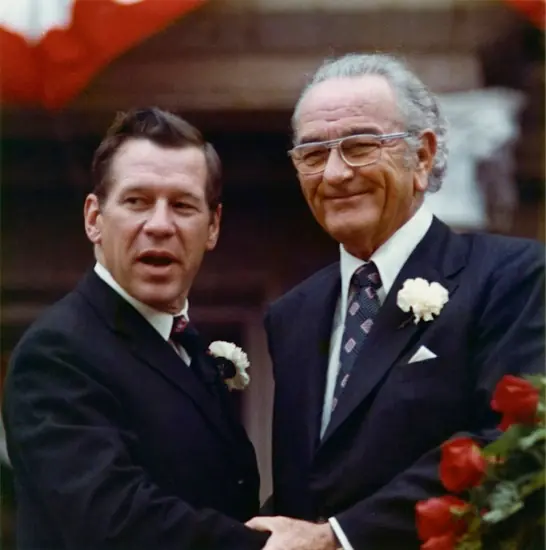
Hobby played a major role in the development of modern public education and higher education policy in Texas. He championed reforms to the state’s school finance system, particularly during the 1984 education overhaul known as House Bill 72. Although some of its provisions—such as mandatory teacher testing—were controversial, the package included significant teacher pay raises, accountability standards, and efforts to equalize funding across districts. Hobby worked closely with Governor Mark White and business leaders to secure passage of the reforms.
In higher education, Hobby supported expansion of the University of Texas and Texas A&M systems, along with efforts to improve governance and funding for regional institutions. He also advocated for the creation of the Texas Higher Education Coordinating Board and emphasized the role of universities in supporting the state’s long-term economic development. Hobby was also a key player in redistricting negotiations, water resource planning, and state budget modernization.
Hobby was not a populist and rarely sought the spotlight, preferring to work behind the scenes to shape legislation and foster consensus. His temperament and command of legislative procedure earned him the loyalty of senators across the political spectrum. Unlike some of his successors, he never sought the governorship or federal office.
After leaving office in 1991, Hobby remained active in public life. He served on several state boards and commissions, taught at the LBJ School of Public Affairs at the University of Texas at Austin, and continued to advocate for political reform and civic education. The University of Houston named its public affairs school the Hobby School of Public Affairs in his honor.
Hobby was married to Diana Poteat Stallings, an academic and the former book editor of The Houston Post, until her death in 2014. They had four children. At the time of writing (2025), Hobby is still living and is 94 years old.
- Bill Hobby, How Things Really Work: Lessons from a Life in Politics (Austin: University of Texas Press, 2010) ↩︎
📚 Curated Texas History Books
Dive deeper into this topic with these handpicked titles:
- Bill Hobby: A Life in Journalism and Public Service (2024)
- The Governor and the Colonel: A Dual Biography of William P. Hobby and Oveta Culp Hobby (2020)
Texapedia earns a commission from qualifying purchases. Earnings are used to support the ongoing work of maintaining and growing this encyclopedia.
